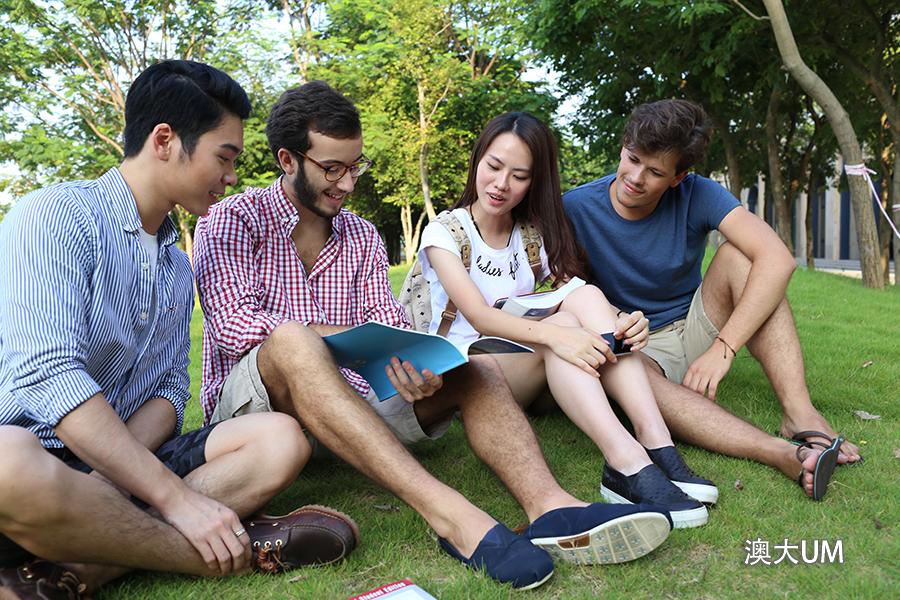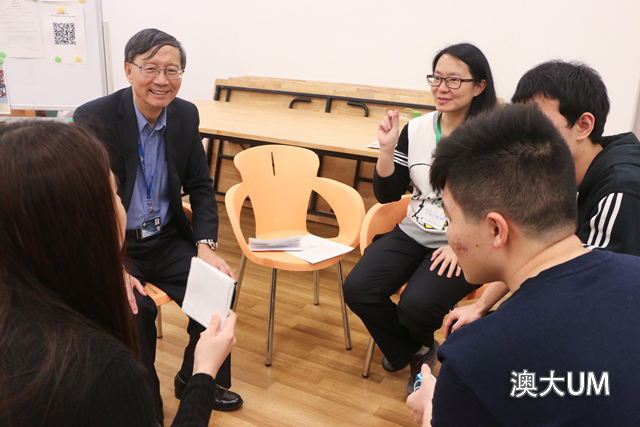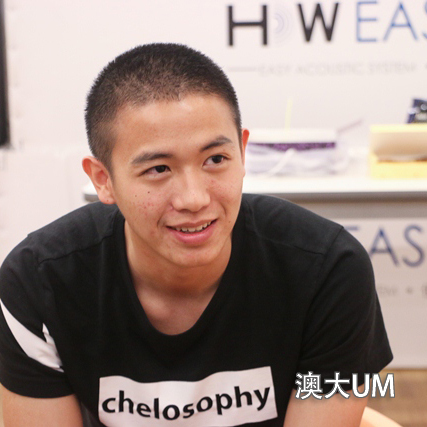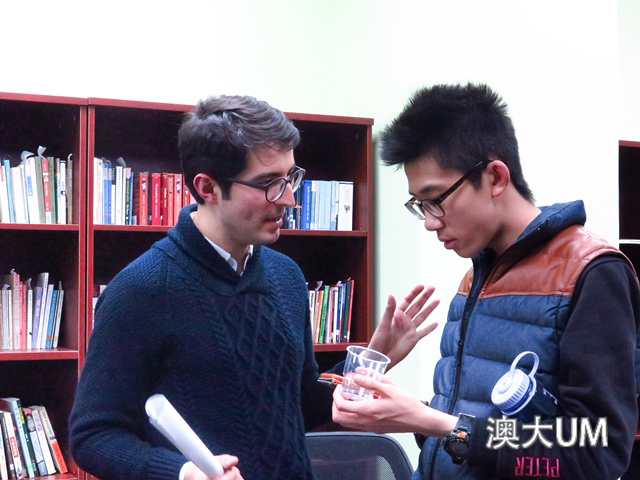Source: My UM
Inhabited by students and staff from around the world, every residential college is like a United Nations. Thanks to the multilingual and multicultural environment, students have many opportunities to practice speaking foreign languages. The colleges also organise a variety of activities on a regular basis, in an attempt to create an environment conducive to language learning.
English Table—English Learning and More
Shiu Pong College holds an English Table every week, where students can improve their English through games or discussing interesting topics with English-speaking staff in a relaxed atmosphere. Shiu Pong College Master Prof Kenneth Leung believes the English Table not only helps students improve their English, but also helps them become efficient learners and good communicators. The weekly event has been constantly enriched to retain and increase the students’ interest. ‘Apart from current events and topic-specific discussions, we now also share some short videos that we think will be of interest to our students, so they can express their views and discuss with their fellow students and staff.’
Damon Xu, a second-year student from the Department of Finance and Business Economics, Faculty of Business Administration, couldn’t even say a complete sentence in English when he attended the English Table for the first time, but now he is like a completely new person. ‘Not only has my English improved quickly, but my overall academic performance has improved as well,’ he says. ‘Also, organising the event helped me develop event organisation skills and boosted my self-confidence, which is an added bonus.’
Promoting Portuguese Culture
In line with the university’s policy to develop Portuguese as one of the key fundamental disciplines, Chao Kuang Piu College (CKPC) actively promotes the Portuguese language and culture among its members. In 2015, in collaboration with the Portuguese Institute of the Orient (IPOR), CKPC introduced an accreditation system widely adopted in the EU and launched a Portuguese programme which is open not just to its college members but to all university students in Macao. The weekly Portuguese courses are available at three levels, so students can choose different levels according to their interest and ability. The first cohort of students who participated in the programme and passed the examination have received certificates from the IPOR. The courses give students an opportunity to talk to their instructors and fellow students from Portuguese-speaking countries.
Portuguese Music Sharing Events
In addition to Portuguese courses, CKPU also holds Portuguese music sharing events from time to time. Under the guidance of Dr Gonçalo Cordeiro and Dr Dora Maria Nunes Gago, students have been introduced to Fado and Canto Alentejano, two traditional forms of Portuguese music which have been declared part of the world’s intangible cultural heritage. Dr Cordeiro believes that residential colleges are an effective vehicle for extending Portuguese learning outside the classroom. ‘In the college, students from different majors, who share an interest in Portuguese, not only can study the language together, but also learn more about the cultures of the Portuguese-speaking countries and broaden their horizons,’ he says.




